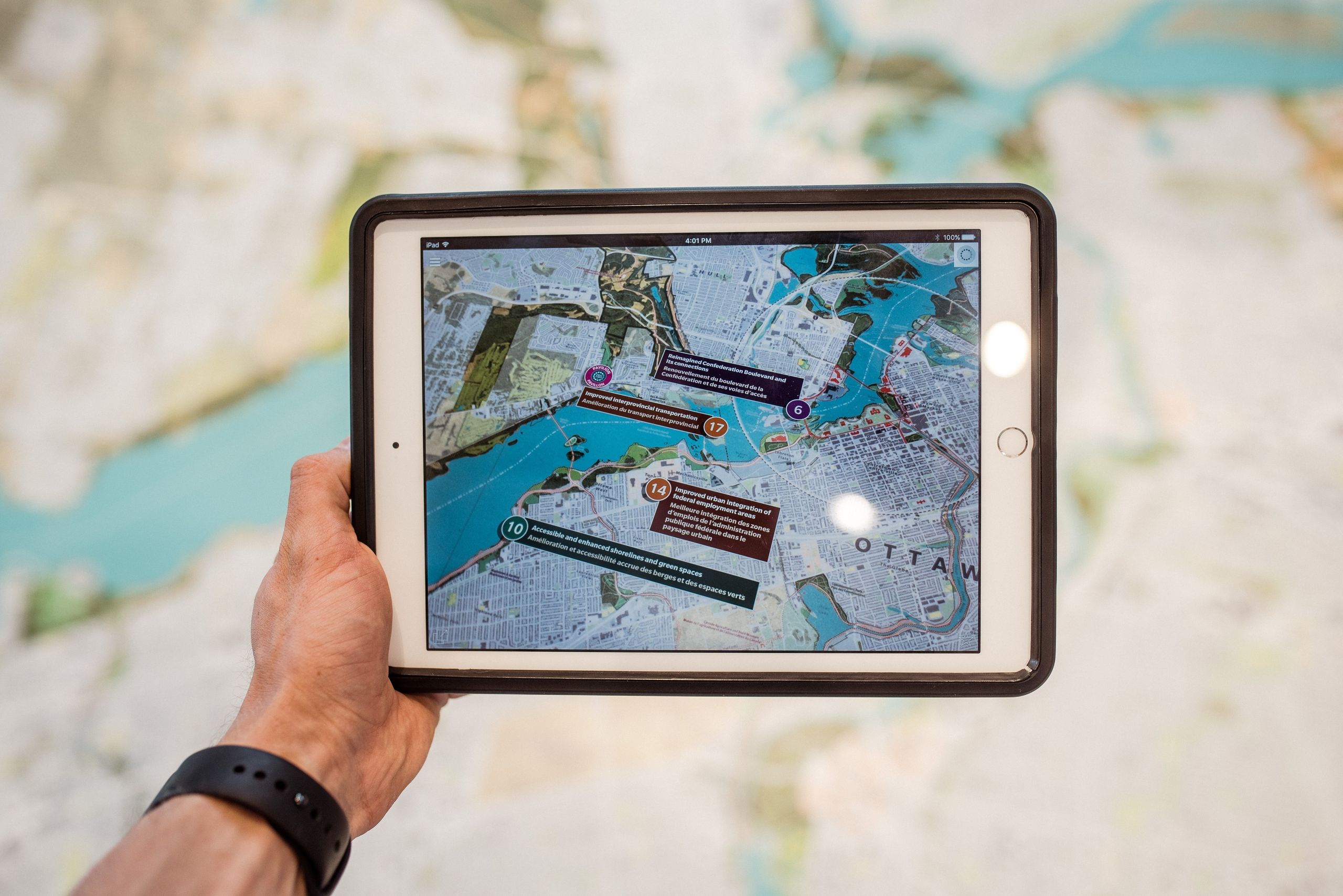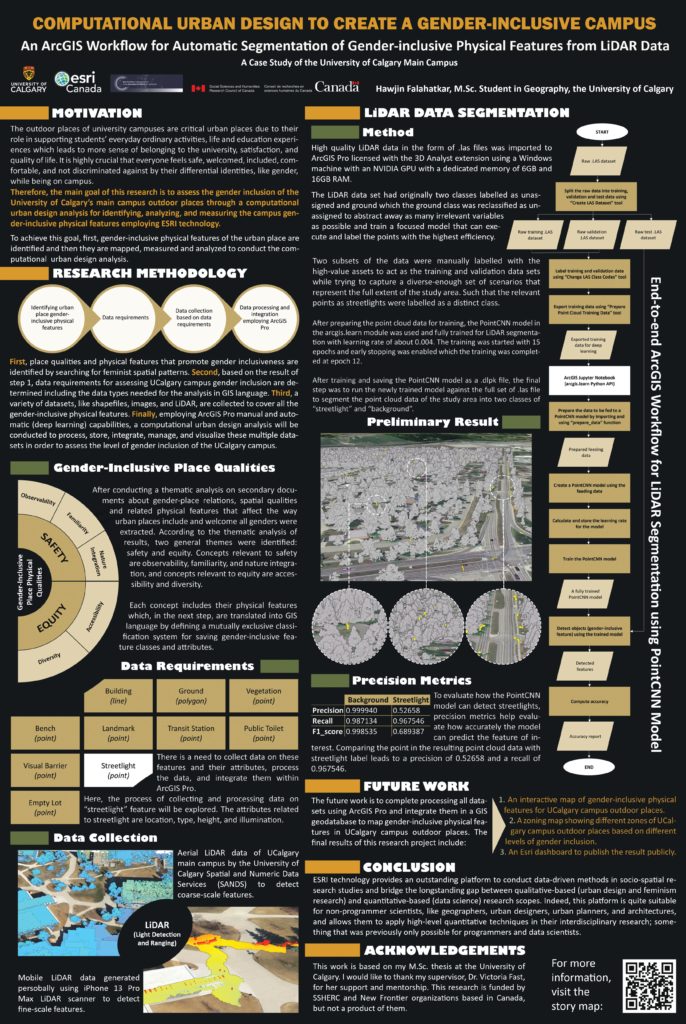

My name is Hawjin (houʒēn). I am an M.Sc. student in geography at the University of Calgary with a background in urban planning and design. Embarking on a challenging and, at the same time, attractive journey, from urban planning and design to geospatial data science, I identify myself as a computational urban designer who tries to bring together the two ends of a spectrum: art and science. In my research, the force that pulls these two poles toward each other is “theory” which determines the socio-spatial data patterns to look for before drowning in the ocean of geospatial big data and data-driven methods!
In my current research, I aim to analyze the gender-inclusiveness of urban places using data-driven methods. When talking about “the right to everyday life”, we understand the role of urban places in supporting our daily ordinary practices like walking, sitting, shopping, recreating, and interacting. However, urban places do not support the right to everyday life equitably for all genders. Barriers in the physical, built, and architectural infrastructure makes urban places physically exclusionary, hostile, and inaccessible to women and other gender minorities. For instance, inadequate transportation services that prioritize commuting over caregiving, appropriate lighting and other means of supervision to enhance the perception of safety, accessible pathways, caregiver-supportive toilets, and other physical features.
Therefore, in the theory-driven phase of my study, I first follow the feminist theory patterns about gender-place relations to find out the data and the methods I need for this analysis. Later, in the data-driven phase, to address all multifaceted aspects of gender-place relationships, I attain and integrate multi-type, multi-scale, and multi-source datasets, from imagery to LiDAR, employing multiple data processing methods, from manual to automatic machine learning methods employing ArcGIS Pro capabilities. This will allow for a socio-spatial analysis to assess how an urban place is accessible for all genders for a safer and more pleasant navigation and accommodation experience.




If you wish to contact this person and they have not provided contact information, you may send your message to scholars@esri.ca. The Scholarship Coordinator will review your message and forward it to the intended recipient if deemed appropriate.


